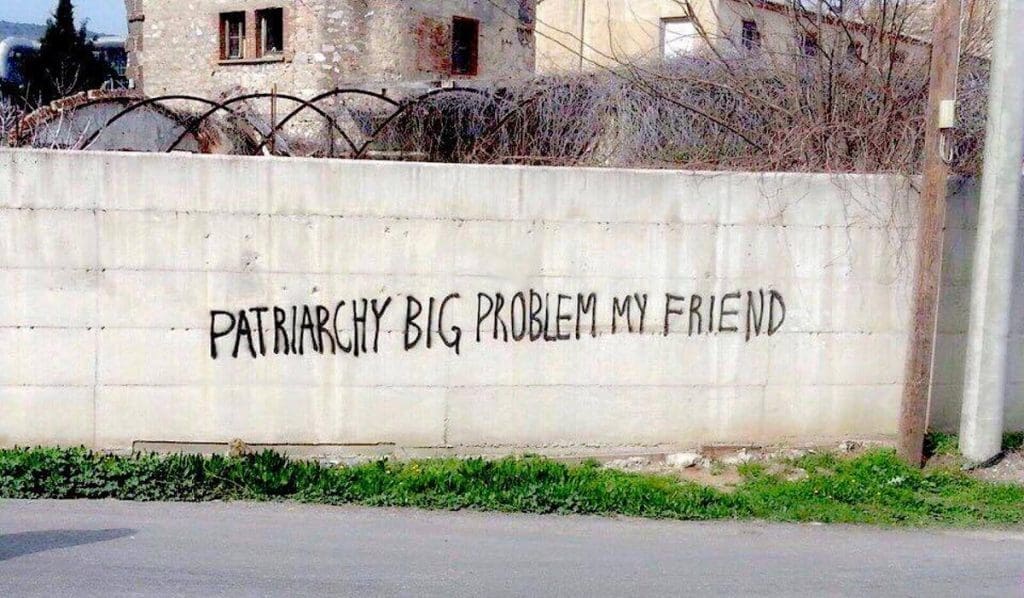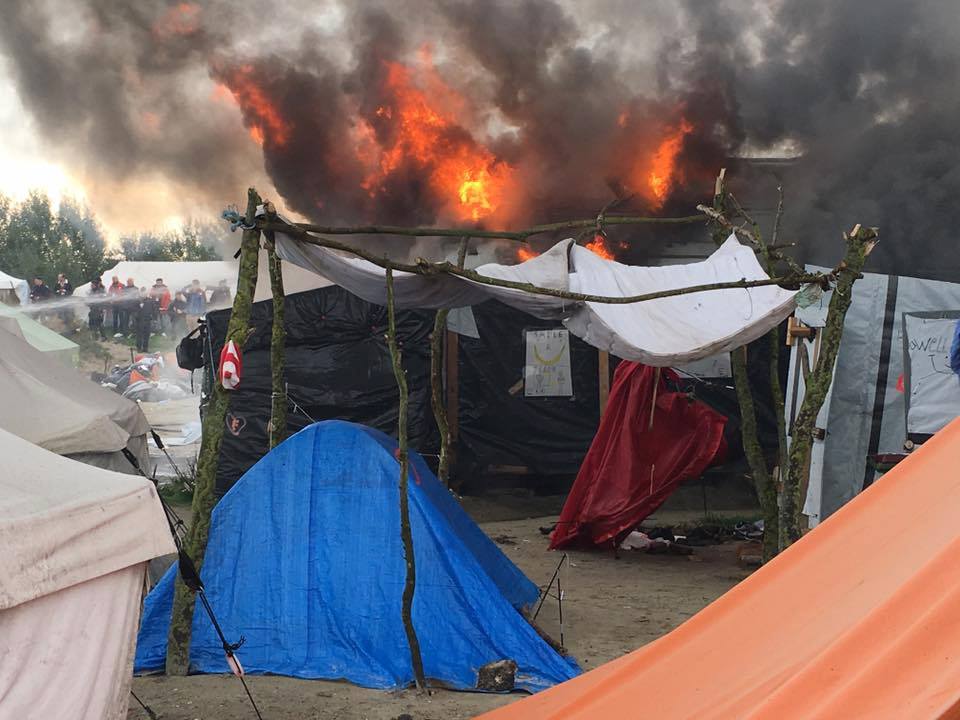Transcribed from the 22 June 2019 episode of This is Hell! Radio (Chicago) and printed with permission. Edited for space and readability. Listen to the whole interview:
The present is what I fear. The future is what I am completely committed to.
Chuck Mertz: Abolitionist socialist feminism sounds like the most delicious complimentary flavors of political thought. Here to help us understand what abolitionist socialist feminism is, and why it’s needed more than ever, is activist, political scholar, and feminist writer Zillah Eisenstein. Zillah is distinguished scholar of antiracist feminist political theory at Ithaca College in New York, and author of Abolitionist Socialist Feminism: Radicalizing the Next Revolution.
You begin with what you call a few foundational queries. You ask, why socialism? “Everyone deserves to live without a fear of hunger and homelessness and illness and unemployment and disability,” you then reply. “The profit motive destroys humanity. A start towards socialism would be a universal livable wage and healthcare for all.”
Why do you believe socialism will end the fear of hunger, homelessness, illness, unemployment, disability? Why do you not fear the kind of socialism that those on the right fear? That is, a dismal, oppressive police state like those of the former Soviet Union or Soviet occupied nations, or even the police state of China? Why do you see hope for that kind of socialism instead of the fear that those on the right see?
Zillah Eisenstein: The hope I am thinking of here, that sustains the commitment to socialism, is a commitment to a vision for humanity and for a humanism of every human body. The notion of socialism is not to look backwards at what the mistakes have been, but forwards as to why it has the capacity to bring a different kind of world forward. Its ideas and commitments, and the positive struggles that have been part of it—it seems to me that we have no choice but to go in that direction. Capitalism is just sucking the world in terms of any possibility of health, happiness, and fulfillment.
The way you asked the question puts me in a defensive posture, as to why I am not worried that mistakes will be made. We live in a moment where the present is what I fear. The future is what I am completely committed to. We have millions of people as refugees and homeless and in cages, even in our own country, just trying to find a way of living with a kind of sustenance and happiness. Socialism, in terms of articulated commitments, seems to be the creative way to go.
The commitment of socialism is to nurture human beings. That’s not the commitment of capitalism. The commitment of capitalism is to create profit and opportunities for those who succeed in the “race of life.” Adam Smith’s notion is that it’s a race. And we all know how many people win a race. Most people are losers within that very construction. I think we have a better possibility with socialism.
CM: You ask also: why feminism? And your answer is, “Because neither sex nor gender should determine one’s life choices, and because misogyny and heteropatriarchy continually seek to control and regulate women’s bodies. My use of the term woman always is inclusive of transgender, variant, queer, and non-binary identities. It is a specifically universal embrace.”
How can feminism be universal? How can feminism be about creating a more fair and just world for everybody, not just hetero women?
ZE: The privileging of hetero women comes from a construction of misogyny, and one that is privileging heterosexism. It is out of that construction that we get this very gendered system that is already exclusionary and hierarchical.
What’s wonderful about the moment we live in is that it is possible to imagine a bigger, more inclusive notion of what any human body means. Particularly because patriarchy and misogyny are so rooted in the control of female bodies, the minute you start to open that to multiple possibilities, you radically democratize what your feminism can mean.
I also try to make clear that there are many feminisms. Some feminisms are and have been clearly exclusive: along class lines, along race lines. That’s why I’m arguing for a very particular kind of feminism: one that is both socialist and anti-white supremacy. We want to multiply whatever the political construction is that we are thinking from. The more multiple and complex it is, the more universal.
I am asking for a kind of inversion of what normally is understood: the idea that if you specify something, you are being exclusionary. Historically people would say, “I’m not a feminist, I’m a humanist,” as though humanist is the bigger, more inclusive construction. My point is: the more specific you are in your starting point for thinking politically (which is about the distribution of power and hierarchy), the more democratic and inclusive and therefore universal you can be.
Liberal democracy, bourgeois democracy, is premised on the idea that everyone is an individual with human rights. Those are all universalized constructs. But what we have seen historically is that the notion of who is an individual is enormously exclusionary. I’m asking for a flip. Be as specific as you can be, and you will be more democratic, more inclusive in your thinking. In a different book I wrote many years ago, called The Color of Gender, I argued that if you want a democratic society, think of that individual as a black woman who is pregnant. Meet the needs of that body, and nobody is excluded. Start with a white male body, and you’ve got exclusions at the get-go.
That’s an earlier construction of what this book is arguing, which is that it’s time to see the multiplicity: capitalism is never just capitalism, and misogyny is never just misogyny, and white supremacy is never just that. It’s difficult to keep the three of them together in order to come to an honest construct of democracy that really excludes no one.
CM: What do we miss in our understanding of feminism when we see feminism as just one monolithic feminism? Does that lead to us having a misunderstanding, for instance, of why women may vote Republican, why women might vote for Donald Trump? What do we miss in our understanding of feminism when we only see it as one monolithic feminism?
We need a feminism for the 99%, not for the one percent.
ZE: We just aren’t seeing the complexity of political variety to begin with. There are even multiple meanings of gender; there are going to be multiple meanings of feminism. But politically, historically, in this country (or in “Western” societies), feminism always was made equivalent to mainstream feminism, which meant liberal feminism, which meant bourgeois capitalist feminism.
Then what does feminism mean? It means opportunity for women within the class structure. But the notion here of opportunity or women’s equality—women’s equality with whom or what? Which man do you want to be equivalent to? An incarcerated person of color? A rich black person? A middle class white man? What does that mean?
When we just have a singular notion of feminism, that singular notion is usually the notion of feminism that supports the society already in place. To think Hillary Clinton and her notion of “breaking the glass ceiling” represents feminism—there are many of us more socialist radical feminists who say: Forget the glass ceiling, let’s get us out of the basement. What many of us are saying is we need a feminism for the 99%, not for the one percent.
So again, who are we looking at? Which women are we speaking about? What is their race? What is their class? What is their sexual preference? We’re not trying to homogenize women—which is necessary in order to enforce the political coding of a particular construction of gender.
CM: You write, “Feminism must create access and freedom for all of our sexual and reproductive bodies. Reform, as in women’s rights, is still threaded and structured through racist heteropatriarchy. So in the spirit of writer Mab Segrest, ‘queer all this as well.’”
What happens to society when our racist heteropatriarchy is replaced by “queering all this as well?” Should those who support the racist heteropatriarchy fear “queering all this as well?” Or do racist heteropatriarchy and queerness not operate in the same way that leads to a kind of supremacy and privilege for one group?
ZE: When we say “queer it,” that really means “open it;” change it for the broad expression of any and all sexual preferences. What’s to fear there? There’s nothing to fear. Again, we live in a world right now where fear is one of the major political centers for Trumpism, and it is a fear of losing white privilege, losing the privilege of misogyny, and losing privilege as part of the 1%. Is there something to fear for those who have accrued unfair power and privilege? Yeah. Unless you understand that it’s unfair, and then you have nothing to fear either. Let’s make a more just society.
CM: Is there a connection between fear and what we see as more implementation of shame to try to get people to change their political views or their actions? Is there some link between the fact that we’re seeing a rise in both fear and shame at the same time?
ZE: Shaming those in power? You can’t really shame people in power. They have the power. You can’t shame them. They don’t give a shit. That’s really the ugliness of power. They don’t have to care. They’re arrogance really doesn’t even allow them to be shamed. Trump? Really? Do you think he’s ever ashamed? I don’t think so. McConnell? After the hearings yesterday I would have just gone and shot myself.
These guys believe in their power, and they fight for their power. The people who I’m concerned about are people who do live in fear, but who do not have the power they need so they are really in danger in our country right now, and there are people who live in fear and are in danger and there is no reason for them to have to live that way.
And then there are those who have been mobilized by the Trump administration to be fearful of any kind of change because they already feel so tenuous in their lives. I feel bad for them that fear is so much a part of their lives, because their lives are difficult, and then out of fear they come to trust and believe in people who have no concern for them.
CM: You write, “Why abolitionism? Chattel slavery has only been reformed, and personhood and civil and human rights remain unfulfilled.”
What do you mean by chattel slavery only being “reformed?”
ZE: Did you hear Ta-Nehisi Coates yesterday speaking on reparations by any chance? What he was saying and what many people who have fought on the whole issue of reparations have said is that the ownership of enslaved people no longer exists as a legal construction, but it still exists as an economic construction and a social construction, and a political construction. If we look at the carceral system today, if we look at housing inequities, and the disparities that exist particularly in terms of economic inequality along color lines—I didn’t used to believe this quite as strongly as I do now. I always believed a little bit that reform was possible but never sufficient. In the last decade I’ve really started to wonder if many of the reforms that get put in place (or don’t get put in place) just keep progressive people (of whatever political bent) busy working to improve certain conditions but not get at the root of the construction of power.
In other words, it is time to abolish white supremacy, not just reform it. The abolitionism of chattel slavery was a reforming of racism and white supremacy. But chattel slavery ended and white supremacy has continued. Just the form of it is different. And I shouldn’t say “just.” The horrific-ness of chattel slavery—I never want to make light of it. But the insufficiency of any kind of change limiting it, changing it, reforming it, is huge.
Sexual violence and sexual predation are at the core of our society and world, whether it’s war rape, or sexual harassment on the job. Sexual violation is at the core of politics, and it forms a kind of glue for capitalism.
Part of the reason I wrote this particular book, which comes out of many decades of writing and activism, was really what felt like a unique possibility: that we were at such an exposed moment of the multiple systems of oppression and the inadequacy of picking at them; that if we could come together (the big We, the We of all different progressive groups)…I don’t think you have to be an abolitionist socialist feminist for me to work with you to fight against this administration, particularly for 2020, and then make a revolution.
There are new possibilities that I don’t think have existed before. We may be living in a moment of singularity (taking the idea from physicists) where all of the changes that have been happening are at such a critical point of crisis that nothing before really makes any sense to us.
CM: You write, “We have a Klan president of sorts, who is also a sexual predator as well as a capitalist apologist. What is happening with this new chaotic exposure? Some might say that fascism has become completely transparent.”
Is that a good thing? Is Trump making fascism transparent and easy for all of us to see the best thing that Trump has done as president? Or is it the worst thing he’s done as president—is he causing fascism?
ZE: I love the question; I don’t have the answer. I want to say it is the gift we have been given, to strongly and vociferously stand against what is happening. But I have as many questions in this book as I have answers. To find out what the questions are is the political imagination we need: not to think we know exactly where we are going, but to know that we are going forward.
A whole series of events—everything from the #MeToo movement, to the unbelievable attack against abortion rights—has sparked a recognition in most people that sexual violence and sexual predation are at the core of our society and world, whether it’s war rape or sexual harassment on the job. Sexual violation is at the core of politics, and it forms a kind of glue for capitalism. If we don’t recognize the politics of sexual violence, then we won’t be able to “make Trump sorry.”
CM: You also ask many questions of the left, inquiring, “Why am I still forced to be making this case after all the years of antiracist, anti-misogynist critiques of capitalist, racist heteropatriarchy? Why is this still a question? Why haven’t progressive thinkers and activists of all stripes changed more? Why does the left fail to recognize the personal is political? That there is a politics to sex? That sexualized racism is foundational for class?”
To you, what explains the left’s inability or unwillingness to challenge racist misogyny? I know that there are more options than just the two I’m going to offer, but which do you think it is more: an unwillingness to challenge racist misogyny, or that the left simply isn’t able, doesn’t have the strategies, doesn’t know how to challenge racist misogyny?
ZE: Lately it’s been a bit of both. Also, I don’t want to beat up on the left here. The call is for a particular recognition of coherence, of racist misogyny and the fact that you can’t separate racism from misogyny—you just can’t. But everybody does. Even when people talk about slavery: they talk about it as a racist system, but the very core of chattel slavery was in the rape of enslaved black women. It was a sexual and economic system.
CM: You also write, “I’m a white woman who benefits from a structural system of white supremacy and privilege but also suffers its misogynist roots and routes.” How far can recognizing white privilege by whites undermine white supremacy? Is white supremacy’s future in white people’s hands?
ZE: It’s a structural system that can’t be reduced to individual anything. Is it true that disproportionate numbers of white women voted for Trump? Yeah. When people ask how that’s possible when he’s such a misogynist—well, you would have to understand that white privilege is also part of misogyny. They were voting for whatever level of privilege or positioning they have. Many of those white women suffer misogyny all the time. But they don’t suffer their whiteness.
I don’t in any way want to speak about this as though it’s easily unwrapped. It works brilliantly to protect the system—it is wrapped on all different levels. Today I was finishing a letter for white women to sign, as a statement standing against the silent privileging that any white person benefits from in our society. What initiated the letter, which we’re going to publish in the next couple of days, was When They See Us, the Ava DuVernay series about the Central Park Five. It exposes two white women prosecutors as being enormously significant in the incredible injustice of that moment. As a white woman, it seemed to me that the silencing and exposure of what happened to five innocent black boys because of the rape of a white woman, and the ease with which racism was deployed—we see the complications of that kind of existence in our society on a daily basis, in all different kinds of forms.
In this particular moment, with an openly racist president, it seems to me that all white people have more responsibility to speak against the system of white supremacy, no matter what that means.
CM: You write, “Maybe some of the new radical women of color among the Democrats, like Alexandria Ocasio-Cortez or Ayanna Pressley, will initiate revolutionary reforms like abolishing the electoral college along with the present representational structure of the senate. Both are rooted in the needs of chattel slavery.”
How are the electoral college and the senate rooted in chattel slavery? And does that make the electoral college and the senate foundational cornerstones for white supremacy and institutional racism in the United States? Are the electoral college and the senate clear and obvious and open forms of institutional racism, in your opinion?
Usually power is not given up voluntarily. That’s why revolutions are needed. I used to argue in my classroom that if you’re ever given something, know that what you just got wasn’t power.
ZE: Yes, they are. I’m a political scientist; I’ve tried to teach the electoral college for years—I just wish I had the clarity that I have now. The electoral college was a gift to southern states to make up for the fact that they were less populated—it was to give them equal power. It was the slave states who were demanding that. And we’re left with that. Talk about history being present: the history here is not really history. It’s the present as well.
The electoral college, all the gerrymandering—all of this is constructed in such a way that makes it very difficult to move forward with an effective political strategy. Trump didn’t win the popular vote. He constructed his win with the electoral college. Right along with reparations, we need to get rid of the electoral college, and we really need a new construction, as well, around the relationship of government structures—the senate and house of representatives.
It’s all rooted in the history of chattel slavery. It’s not gone.
CM: You write, “Nevertheless, educated suburban women appear to have moved towards the Democrats in many of the 2018 midterm elections. ‘Educated and suburban’ as a description of women is shorthand for ‘middle- and upper middle class white women.’ So maybe it is possible that class and gender will combine in this particular scenario to create a vote against Trump, and inadvertently, a vote against racism in 2020.”
Why do you say ‘inadvertently?’ Is hating Trump more powerful than even defending your white privilege and embracing white supremacy?
ZE: When we have multiple identities and multiple overlaps with different interests, I don’t think they always are separable, or able to clarify which is the dominant force at any particular moment. But because of the exposure right now around issues of sexual violence, and the whole question about reproductive rights, I do think that women of all colors have different capacity to understand their interests even when they will be somewhat conflictual, internally.
I am very hopeful that the different political struggles that are going on right now—and all kinds of feminist activism that is going on right now—will mean that Trump will not be elected again. But the forces protecting and supporting him are enormous.
CM: You advocate “listening to and thinking with women of color very carefully. If I do not feel unsettled, I am not listening. If I am not destabilized about my place in the scheme of things, I’m not doing the work. Never think that color does not matter. Never be afraid or believe that you cannot stand against injustice. Absolutely do not remain silent because you are frightened to make a mistake. Risk everything, and the support you need comes forth.”
Is the goal, then, for all white people to challenge their own power? To have a revolution to overthrow their own white privilege and supremacy? Is the reason white supremacy and privilege are so intact is that white people need to voluntarily give up their power and their advantages?
ZE: Usually power is not given up voluntarily. That’s why revolutions are needed. I used to argue in my classroom that if you’re ever given something, know that what you just got wasn’t power. It always entails a struggle. What I am asking is for white people to become participants in a revolutionary struggle; that their location afterwards will be different; and that the whole panoply of what humanity feels like and what decency feels like and what justice feels like will be different. But you can’t be scared that you might not like it.
CM: Zillah, I really appreciate you being on our show this week.
ZE: Thank you so much.





